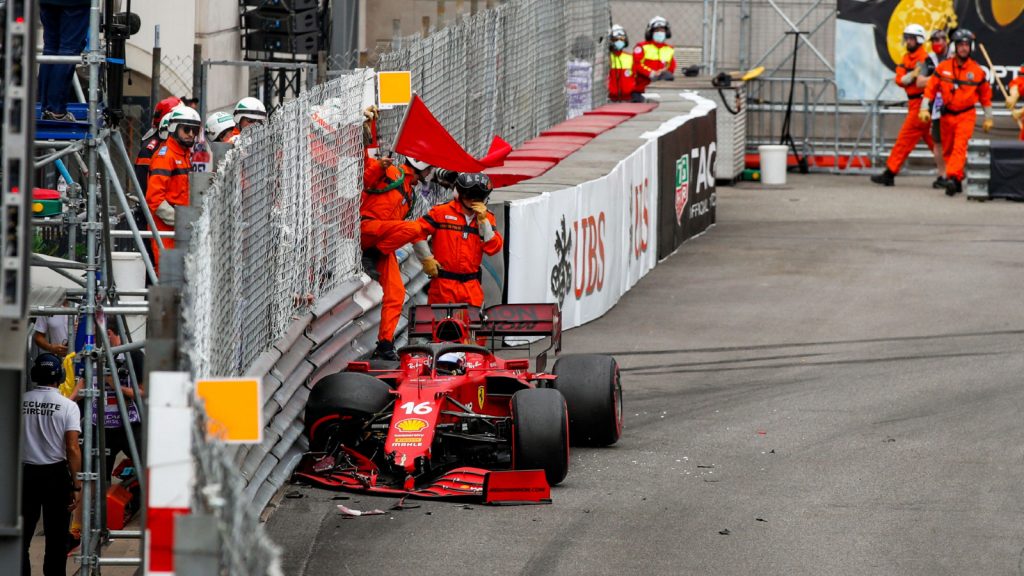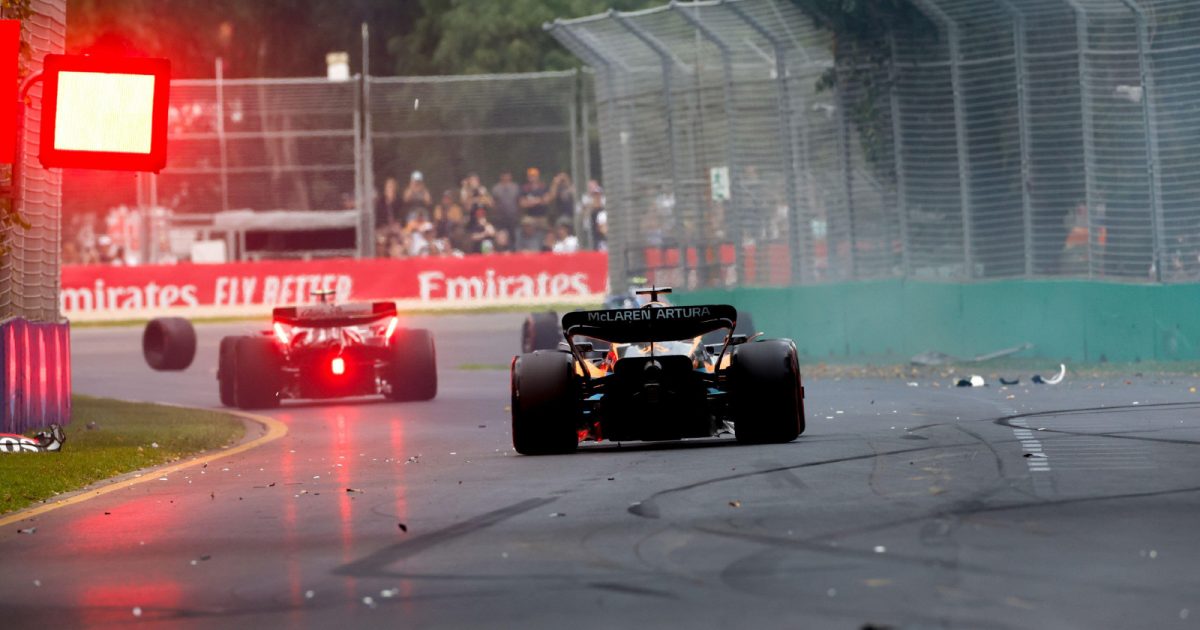Is it time for F1 to introduce a rule to punish drivers who bring out yellow or red flags and spoil another driver’s qualifying lap?
“He needs to get penalised, this guy (Alonso), he has to,” a furious Alex Albon ranted over team radio at the end of Q1 in Azerbaijan,having had his final flying lap spoiled by the Spaniard.
“This is ridiculous. He was doing it the whole lap. He was driving slowly on purpose and then it was so obvious how he went off the track – it was ridiculous. He braked so early and then he just went off the circuit.”
The British-Thai racer was right to be annoyed with the outcome, given Alonso’s off at Turn 15 happened in such a way that Albon could not do anything but back off as the Alpine cut across the corner.
Of course, Alonso denied any wrongdoing or intent, and no punishment was meted out by the stewards. It was, quite simply, a mistake from the Spaniard, and it was Albon who lost out on his final lap as a result.
But is that really a particularly fair way to go about qualifying these days? After all, it is absolutely not beyond the realms of possibility that a driver will purposely trigger a yellow flag specifically to ruin another driver’s attempt to better their time.
Think back to 2006 when Michael Schumacher parked his Ferrari at Rascasse in Monaco to spoil Alonso’s final run. Or Nico Rosberg’s ‘error’ at Mirabeau in 2014, resulting in him going straight up an escape road and ruining Lewis Hamilton’s riposte.
But there have been plenty more recent incidents, less obvious in nature, where drivers have caused a flag and benefited from the situation.
Think back to Imola earlier this season when both Kevin Magnussen and Lando Norris ended up with strong grid slots for the sprint after bringing out red flags for spins in Friday’s qualifying session.
Max Verstappen has not managed to get his final run in at Monaco since 2019 due to provisional pole-sitter Charles Leclerc crashing at the end of Q3 in 2021,and Sergio Perez and Carlos Sainz colliding at Portier last month. Verstappen also lost out on his final run in Azerbaijan last season due to a Sainz incident.
The prevalence of these incidents is such that an adjustment to the current rules is probably warranted at this stage. After all, a driver’s weekend can be ruined by the timing of such a flag, through no fault of their own. Compare F1’s lassez-faire approach to flag-causing incidents with that of IndyCar.
“If a Car causes a Red Condition in any segment, the Car’s best two timed laps of the segment shall be disallowed, the Car may not continue in the segment and the Car shall not advance to the next segment,”states Rule 8.3.4 of the IndyCar rulebook.
IndyCar also has stringent rules in place for cars causing yellow flags: “If a Car causes a Yellow Condition that requires another Car to [show caution], the Car’s best-timed lap to that point
during that Qualifications segment shall be disallowed.”
Put simply, every single one of the aforementioned incidents would have resulted in some form of punishment for the drivers causing the flags.

Of course, there is the argument that nobody is intentionally bringing out flags. After all, Leclerc is highly unlikely to have intentionally crashed his Ferrari at the Swimming Pool in 2021 given the damage he could have – and indeed did – inflicted on his car. Likewise, Sergio Perez and Carlos Sainz did not intentionally collide at Portier. With drivers in qualifying pushing the hardest they get to all weekend, mistakes will happen.
One solution could be that a driver causing a yellow or red flag has their best time removed, unless the car has sustained damage. If the car is damaged to the point where parts require changing (and said parts can be examined by the stewards), it can be assumed the incident is legitimate, given no team would want to intentionally damage a car, particularly in light of the budget cap. If the driver causes a flag but there is no damage, their best time is removed. Fair? Perhaps it is not ideal, but still ensures a punishment for affecting the qualifying of other drivers.
另一个解决方案可能会更简单to implement. If a yellow or red flag is shown in the final three minutes of a qualifying segment, all remaining drivers are given one more flying lap regardless of what the timer says. If another flag occurs on that run, then reset and go again. However, this could also be somewhat difficult to ensure fairness, given a driver may not have any fresh tyres left.
Maybe a draconian approach is the only solution? Perhaps a rule such as “if a driver brings out a yellow or red flag in qualifying, their best time for that segment is disallowed”, combined with a one-lap extension for the remainder of the field, is harsh enough to ensure there is no chance of any game-playing.
Lando Norrisagrees with the idea of a punishment being introduced, albeit with mechanisms in place to figure out when something is not quite above board.
“I think there’s a difference between people doing it by accident and people doing it to get out of the way of people by not causing blue flags and whatever when you’re in qualifying, versus people who quite obviously do it on purpose,” he toldMotorsport.com.
“Especially when you’re one and a half seconds down on a push lap! You always say it until you’re the one that does something wrong. And then you’re like ‘oh, I wish that rule wasn’t introduced’ because you’ve just made a simple mistake, like when I spun at Imola.
“I guess I say I wish there’s no rule, but obviously when someone else does it you say you wish there was a rule. It always bites someone at some point. Of course. the people who are more vocal about it are the ones who just haven’t made a mistake yet.”
Daniel Ricciardois another driver in favour of changes being introduced. “It’s tough because every incident will probably be a little bit different,” he said.
“But unless you’ve frickin’ totalled your car, if it’s just like a little lock-up or an escape road or something, then I feel like if you’ve caused something then maybe we should look into being penalised or something for it. Maybe a deleted time could be a good way of looking at it.”

